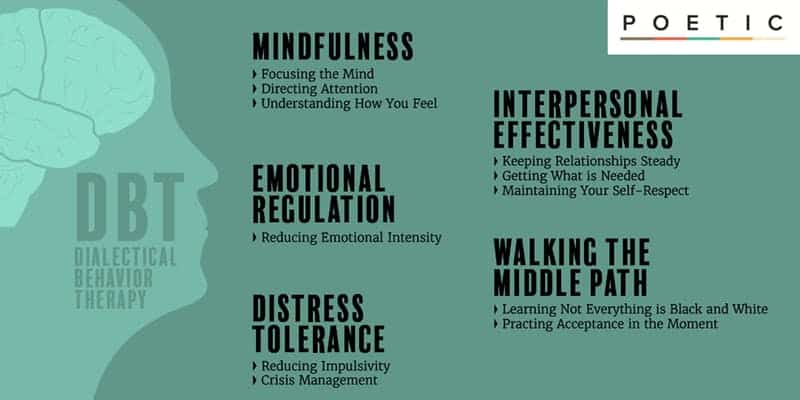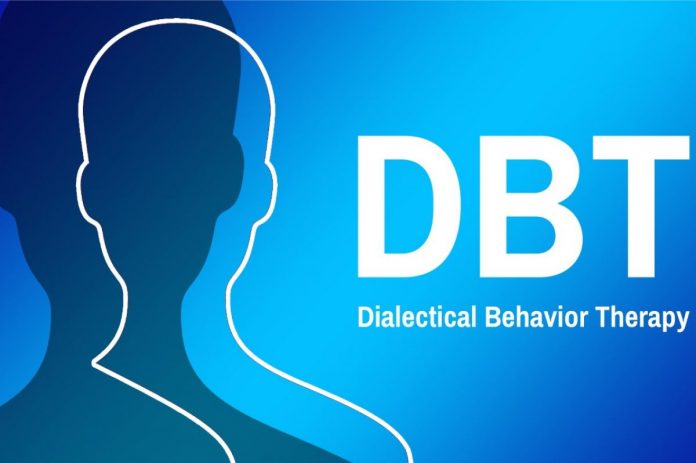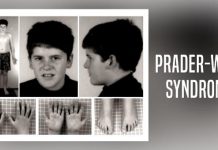There are an ever increasing amount of different available approaches to therapy, including family therapy, cognitive behavioural therapy and interpersonal therapy. More recently a new, innovative approach, namely DBT has been recognised to be of significant use particularly for those wishing to learn effective, interpersonal relationship skills. Key areas to be explored are listed below.
- What is DBT?
- DBT skills
- Benefits for Eating Disorder patients
What is DBT?

DBT stands for Dialectical Behaviour Therapy and is a relatively new approach to therapy, developed by Marsha Linehan, Ph.D and psychology professor at Washington University, Seattle. This approach was originally recommended for the treatment of personality disorders and has since been adapted for other conditions such as eating disorders.
DBT is a complex treatment and is also believed to be partly based on Buddhist teachings. This therapy also requires those involved in teaching DBT skills to be especially trained in this approach. Due to the importance placed on teaching new skills this approach is often referred to as being “psychoeducational.”
DBT Skills

DBT primarily involves teaching the patient a variety of new techniques and coping strategies to add to their tool box, including the following: self-harm reduction, mood regulation and effective interpersonal skills. Education is also focused on the concepts of mindfulness and acceptance. Mindfulness requires one remain in the present and involves a deep awareness of one’s thoughts, feelings, motivations and actions. A key element is the introduction and application of distress tolerance skills used to help the sufferer modify risky or unhelpful behaviour patterns.
Although as yet there is limited research on the effectiveness of DBT for treating eating disorders currently available it has been recognised to be beneficial for those suffering binge-eating disorder. During dialectical behaviour therapy patients are also permitted to contact their therapist be telephone in between sessions thus providing another valuable support and healthier alternative to engaging in self harm behaviours.
Benefits for Eating Disorder Sufferers
Key benefits of using DBT in the treatment of eating disorders include: usually used in outpatient treatment (avoids expensive hospitalisation costs), aids those suffering coexisting personality disorders, teaches valuable harm-reduction, distress-tolerance and mindfulness skills which all may be used as a weapon to be used against the eating disorder.


















